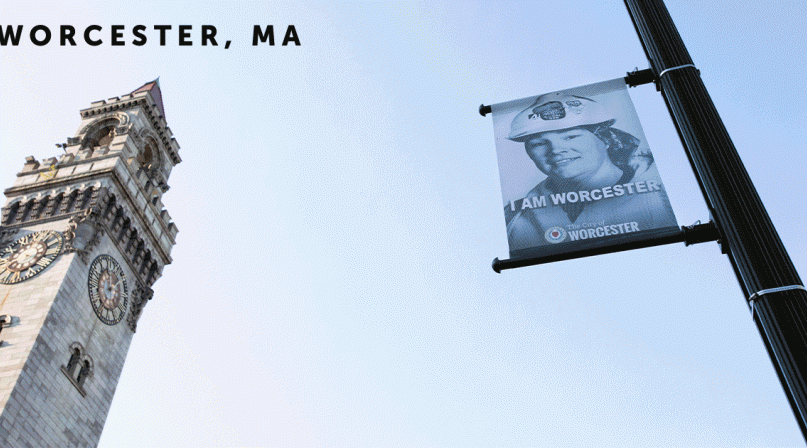RWJF Culture of Health Prize Winners
Upcoming Events
Related News

Key Takeaways
The Robert Wood Johnson Foundation (RWJF) recently announced 10 communities that were chosen to receive the 2020–2021 RWJF Culture of Health Prize. The Prize honors and elevates communities at the forefront of advancing health, opportunity and equity for all. The 2020–2021 winners include three counties and seven other communities:
- Alamosa County, Colo.
- Howard County, Md.
- Palm Beach County, Fla.
- Addison, Ill.
- Chickaloon Native Village in Alaska
- Drew, Miss.
- National City, Calif.
- Rocky Mount, N.C.
- Thunder Valley Community—Oglala Lakota Nation (Oceti Sakowin Territory)
- Worcester, Mass.
Chosen from a group of about 200 applicants, each Prize winner will receive $25,000, join a growing network of Prize-winning communities and share their accomplishments to inspire other communities across the nation who are building a Culture of Health.
“The 2020–2021 RWJF Culture of Health Prize winners are striving to make good health and well-being achievable for all their residents,” said Richard Besser, MD, president and CEO of RWJF. “They understand the clear connection between the opportunity for health and education, jobs and housing. They are leaning into community-led solutions that break down barriers caused by structural racism and other forms of discrimination.”
The three Prize counties have a distinct vision for the future and have taken a unique approach to improving the health and well-being of their residents.
- Alamosa County, Colo.: Located in the San Luis Valley, Alamosa County prioritizes its policies and resources to ensure everyone can live healthy lives. The City of Alamosa, which is the county seat of Alamosa County, and SLV GO! partnered to double the city’s trail mileage to over 24 miles, making recreation more accessible and promoting the value of spending time outdoors to improve health and wellness. Grassroots, nonprofit and local government leaders collaborate to change public health programs into official city policy, such as the Healthy Eating, Active Living initiative and the SLV Health Access Risk Reduction Project, a comprehensive harm reduction program. The Rio Grande Farm Park also serves a dual purpose: offering regenerative agriculture educational opportunities and providing land access and economic boon for local farmers.
- Howard County, Md.: Diversity, equity and inclusion is vital to Howard County, and this is demonstrated in part by its largest city, Columbia, which is a planned community designed to bring people of all backgrounds together. The community provides grocery-style food banks, mixed-income housing and equitable funding for public schools to increase opportunities for all residents. Its Complete Streets policy is improving neighborhood walkability and allowing pedestrians, cyclists and cars to move around safely. The county has seen tremendous population growth during the past 20 years, and its data-informed approaches have helped efforts to meet the needs of a growing population, including directing resources to low-income families.
- Palm Beach County, Fla.: In Palm Beach County, local leaders are working with community residents to create sustainable change within its diverse neighborhoods. Through community-led initiatives like Healthier Together and BeWellPBC, residents are defining local challenges and driving efforts to address mental and physical health and overall well-being. These resident-led systems have helped to expand equitable access, including bridging the digital divide, emphasizing trauma-informed care and practices, incorporating community-led grantmaking and spurring county-wide efforts to dismantle systemic racism.
Counties play a vital role in the health and well-being of their residents, and we congratulate Alamosa, Howard and Palm Beach Counties on their success and leadership.
County News
Rural county champions a culture of health

Related News

NACo offers new Medicaid resources as Congress advances Budget Resolutions with major Medicaid reform implications
On April 10, the U.S. House of Representatives voted to adopt a Senate-passed budget resolution, marking the next step in the budget reconciliation process. The proposed funding levels therein represent significant potential cost shifts to counties, particularly in the area of Medicaid financing. To help county leaders understand what’s at stake, NACo has developed two new resources.

County Countdown – April 21, 2025
Every other week, NACo's County Countdown reviews top federal policy advocacy items with an eye towards counties and the intergovernmental partnership. This week features the ARPA reporting deadline, a budget reconciliation update and more

U.S. House reintroduces legislation to address the Medicaid Inmate Exclusion Policy
Two bipartisan bills aimed at addressing the Medicaid Inmate Exclusion Policy (MIEP) were recently reintroduced in the U.S. House of Representatives.